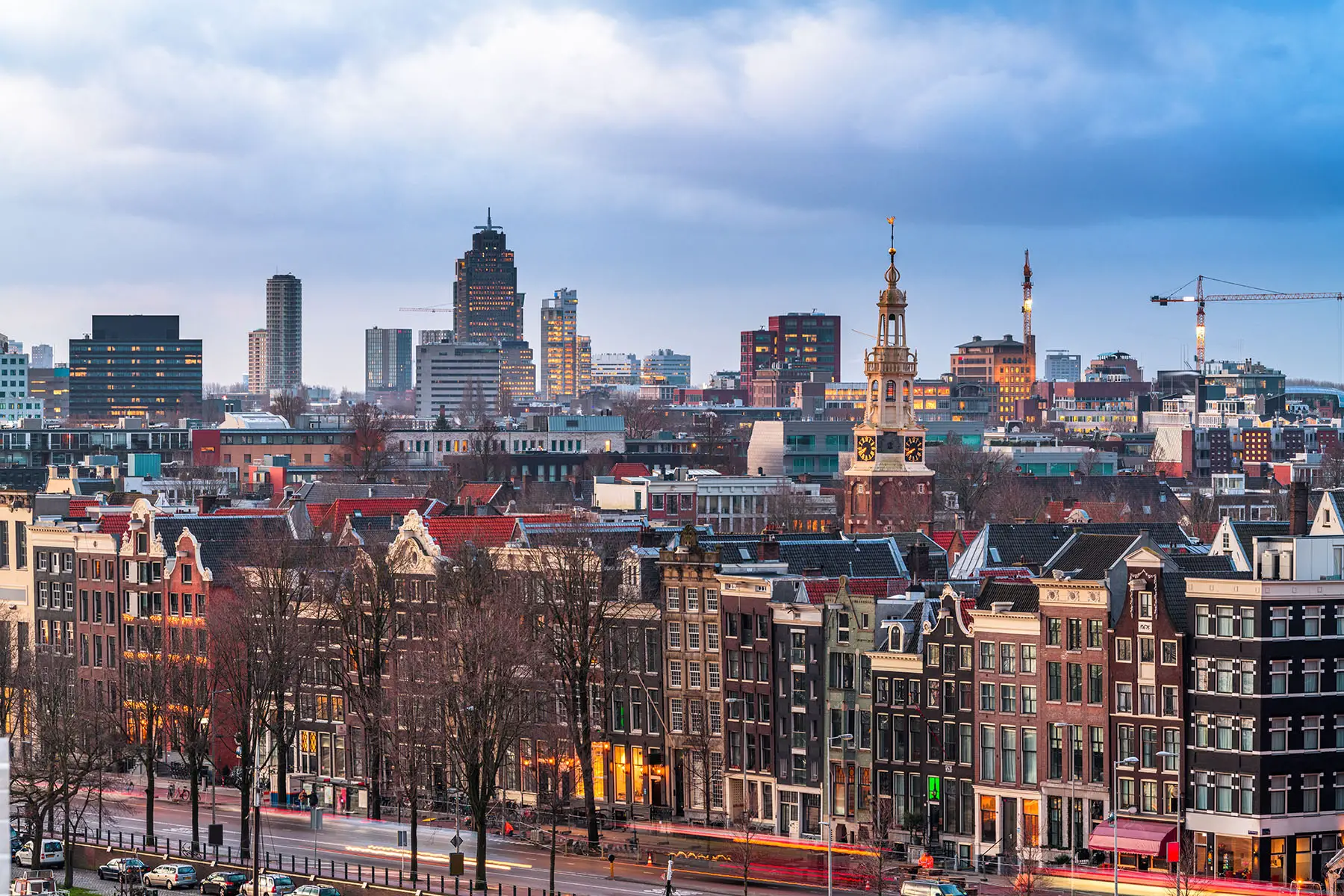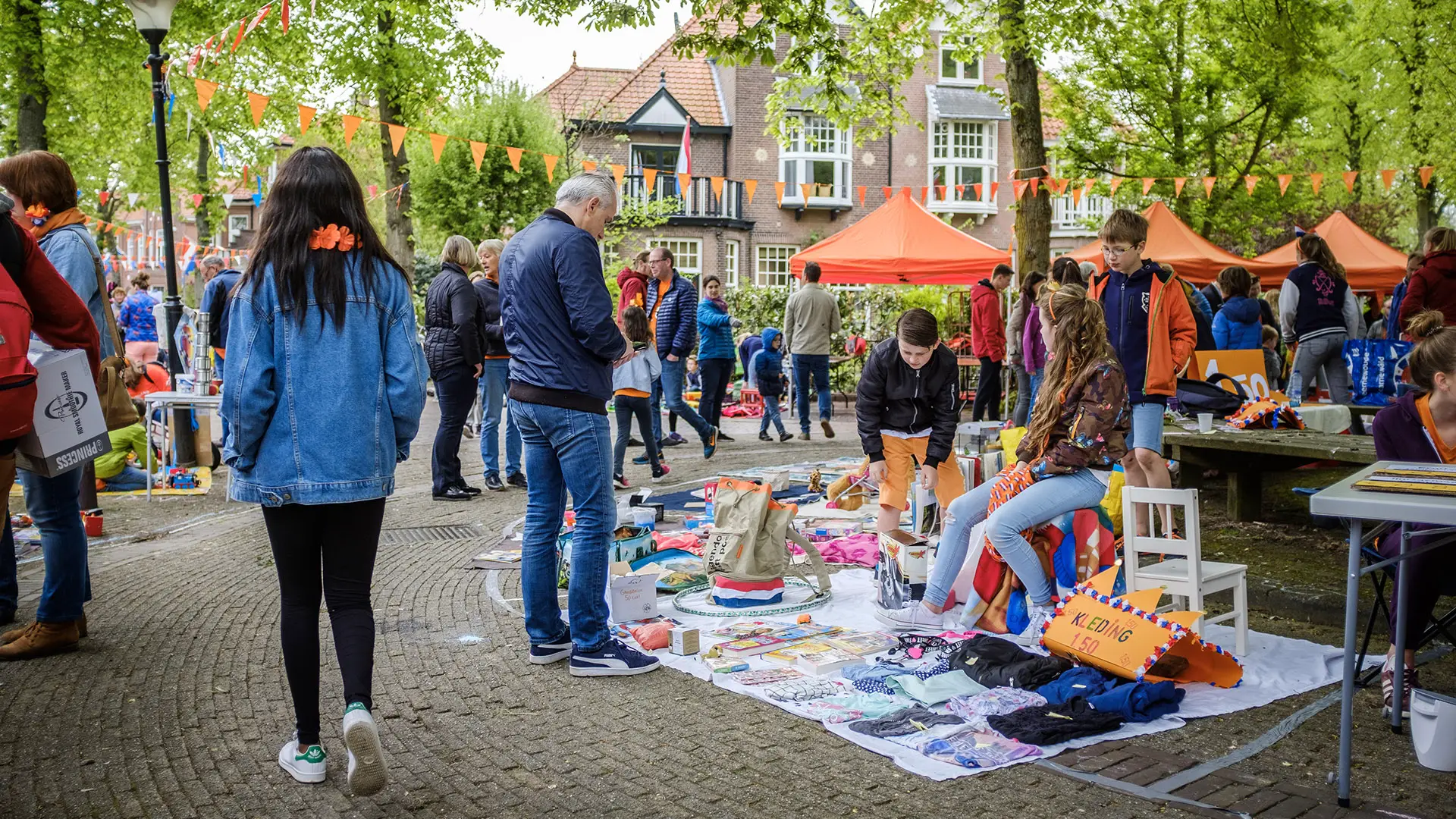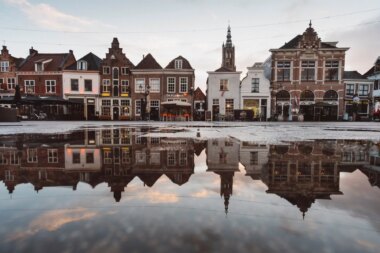The Netherlands is renowned for being an open-minded and tolerant society, with a wide range of political parties in its parliament, acceptance of LGBT+ people, and a liberal attitude towards soft drugs. But beyond the stereotypes, there’s a lot more to the Netherlands and its people. If you’re living there, it’s helpful to understand Dutch customs and etiquette for different situations and scenarios, including business meetings, dating, and meeting people for the first time.
Read on to find out more about the following:
- Dutch culture and society
- Gender roles in the Netherlands
- Meeting and greeting people in the Netherlands
- Conversation and communication in the Netherlands
- Clothing and dress code in the Netherlands
- Dining etiquette in the Netherlands
- Socializing in the Netherlands
- Relationships in the Netherlands
- Work and business culture in the Netherlands
- Shopping and services in the Netherlands
- Celebrations in the Netherlands
- Regional variations
- Tips on culture and etiquette in the Netherlands
- Useful resources
&Work
If you’re looking for work in the Netherlands, check out &Work. You'll find a range of job vacancies on their site, from developers and designers to lawyers and notaries. See how &Work can help you find your next role in the Netherlands.
Dutch culture and society
The Netherlands is a liberal country with a progressive outlook, and Dutch people are characteristically straightforward, pragmatic, and tolerant. Many Dutch attitudes, values, and beliefs appear to stem from Calvinism, a major branch of Protestantism, which dates back to the 16th century.
While religious teachings might have shaped the nation’s morals and way of life, the Netherlands as we know it today is one of the most secular countries in Western Europe. In fact, over half of the Dutch people say they are non-religious, according to a 2020 survey by Statistics Netherlands (Centraal Bureau voor de Statistiek – CBS). Among those who are religious, 20% are Roman Catholic, nearly 15% are Protestant, and 5% are Muslim.
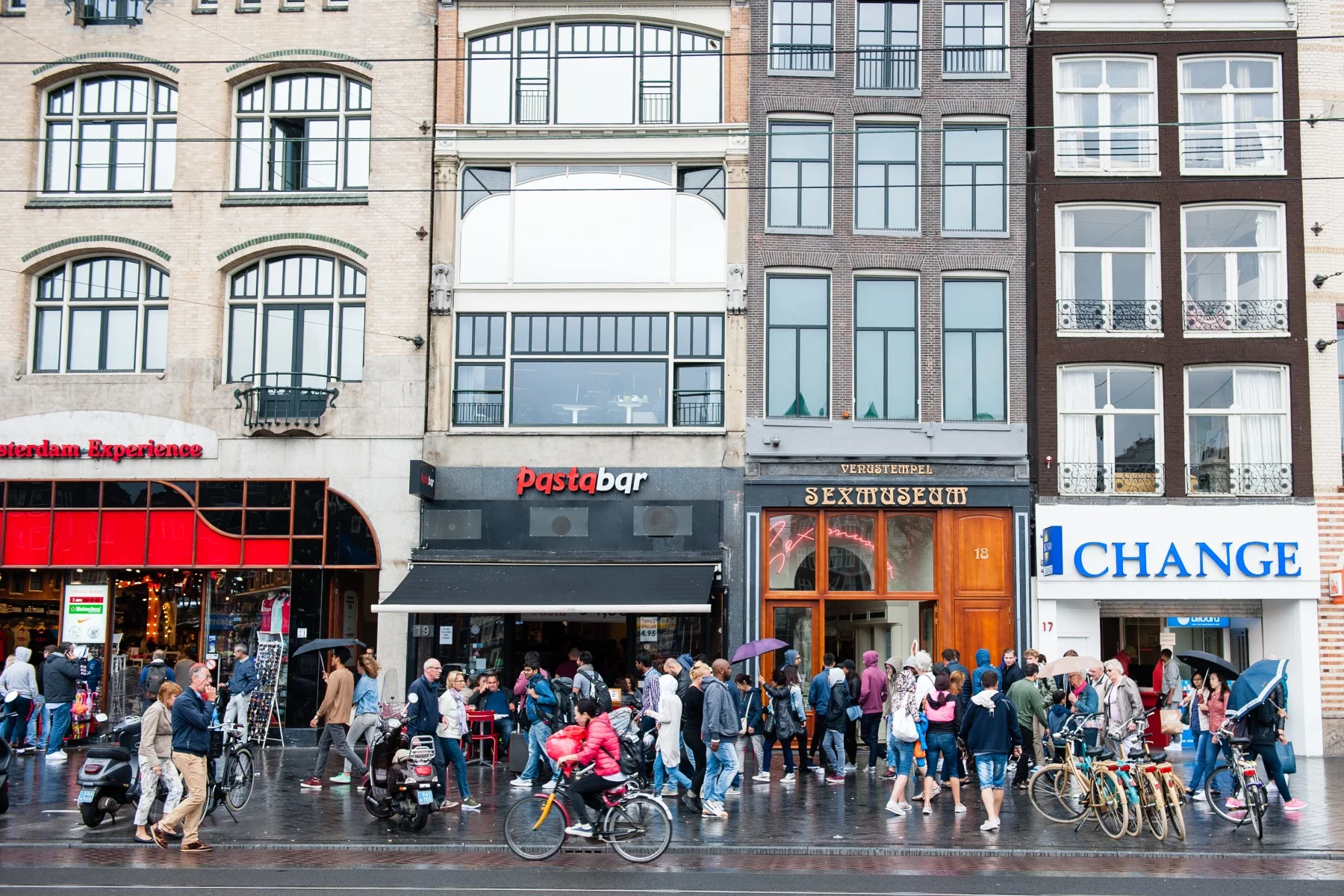
The Dutch constitution bans discrimination and guarantees freedom of religion, speech, and assembly. It also ensures the right to privacy. While this allows most people to live freely, no matter their beliefs, discrimination does exist in the Netherlands. According to official figures, the most common instances relate to race and nationality, forming 42% of police reports of discrimination in 2021. Discriminatie.nl notes that much of this discrimination targets people of color. Cases of prejudice are particularly prevalent in real estate and the job market.
Almost everyone in the Netherlands speaks Dutch, the country’s official language. West Frisian (Frysk) is also an official minority language in the province of Friesland, in the north of the country. Although English isn’t an official language, the Dutch are the world’s most proficient non-native English speakers. According to the 2021 English Proficiency Index by Education First, over 90% of people in the Netherlands speak English.
Gender roles in the Netherlands
The Dutch generally have progressive attitudes towards gender equality, and the Netherlands ranks fifth in the EU on the European Commission’s 2020 Gender Equality Index.
In reality, however, gender-based discrimination in the Netherlands still exists. Statistics from the European Commission on gender pay disparity reveal that women earn 14% less on average than their male counterparts. In an effort to confront gender inequality in the workplace, the Netherlands passed legislation in 2021 that requires large Dutch companies to appoint more women to leadership roles. According to the bill, all listed companies must meet a quota that ensures women make up at least one-third of their supervisory board.
Expat women in the Netherlands can expect to be treated fairly and with respect. However, they may contend with male-dominated work environments and a disproportionate number of men in senior leadership roles, particularly in the IT and engineering sectors.
Meeting and greeting people in the Netherlands
In the Netherlands, it’s polite to greet people when you enter certain situations. For instance, when you walk into a waiting room at the doctor’s office, it’s customary to greet others with a simple “hallo” (hello) or “goededag” (good day). When leaving, you can wish people “fijne dag” (have a nice day) or “dag” (goodbye).
At business meetings or formal occasions, it’s normal to shake hands with everyone present when you arrive, and again when leaving. In personal settings with friends or family, the Dutch commonly greet each other by kissing three times on alternating cheeks. If you’re meeting someone for the first time, it’s good etiquette to shake hands and introduce yourself to everyone attending.
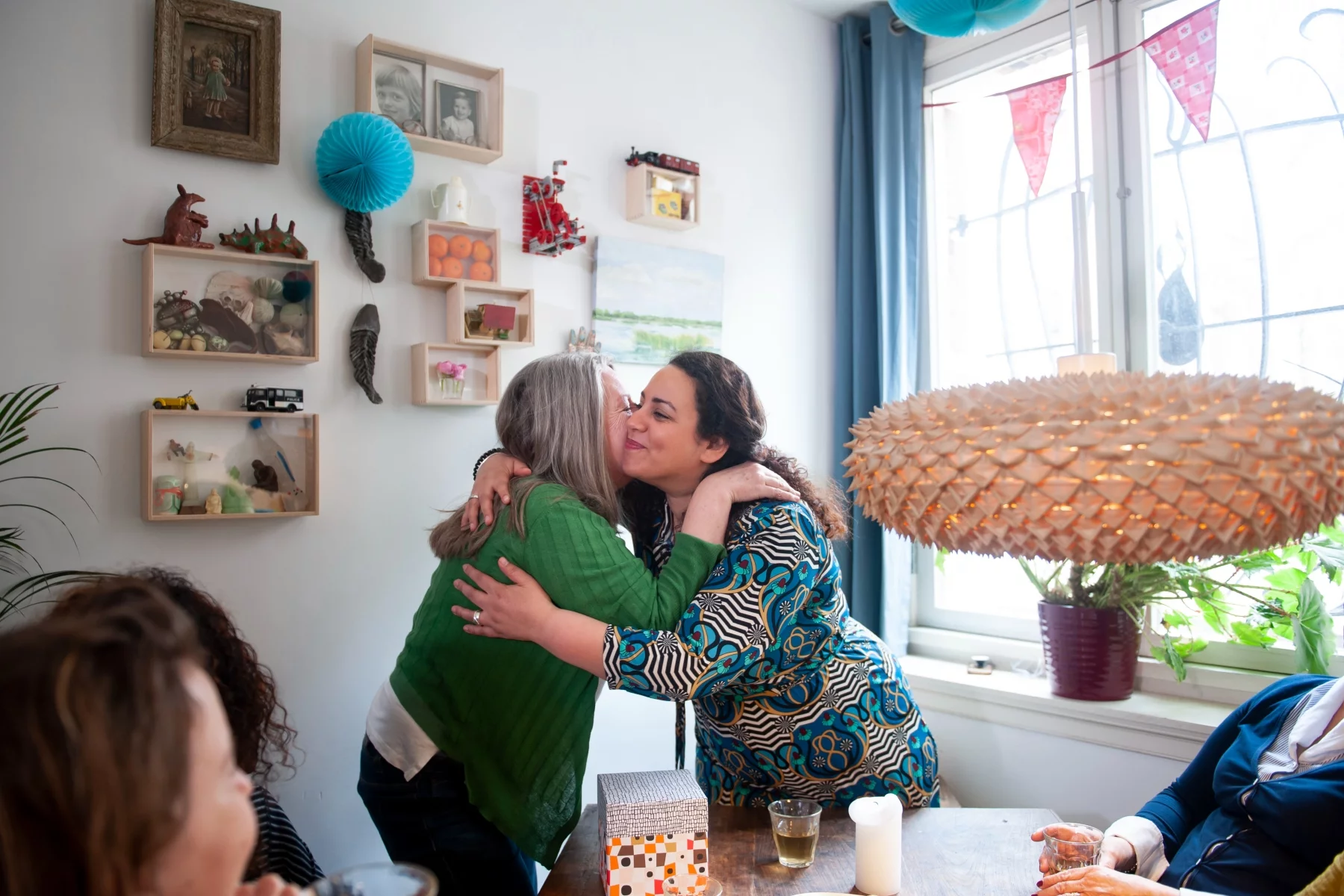
In casual settings, many Dutch people address each other with their roepnaam, which is usually an abbreviated version of their first name. For instance, “Juliana” may become “Juli”. In some professional or formal settings, it’s common to address a person with their given name or with titles such as “meneer” (Mr.) or “mevrouw” (Mrs. or Miss), followed by their last name.
An important aspect of Dutch etiquette involves having good timekeeping habits. The Dutch tend to take punctuality very seriously, so make sure you arrive at appointments on time. If you’re running more than five minutes late, you should inform the people expecting you. In addition, Dutch people are known to schedule plans weeks or even months in advance. With that in mind, it’s best to avoid showing up at someone’s house unannounced. It’s particularly wise to avoid interrupting someone during dinner, which usually starts between 17:00 and 19:00.
Conversation and communication in the Netherlands
The Dutch communication style is open and straightforward. Dutch people value honesty, so they’re known to be frank and speak their minds. Some expats may interpret this directness as being rude. However, to the Dutch, being direct allows them to communicate more clearly and efficiently. Being open makes it less likely that there will be any ambiguity or misunderstandings.
Despite being very open and direct, the Dutch can also be reserved and private. As a result, they seldom initiate interactions with strangers. When you engage in conversations with Dutch people, it’s a good idea to be aware of some topics that are considered impolite. In general, the Dutch avoid discussing subjects that could place people in any kind of hierarchy. For instance, you shouldn’t discuss money or personal wealth with people you don’t know well. On the other hand, Dutch people are much more open when speaking about certain topics that are taboo in other cultures, such as sex.
Body language
Dutch people generally appreciate their personal space. Despite the Netherlands’ high population density in the world, it’s as though they compensate for the lack of physical space by maintaining distance between themselves and others. During conversations, people typically keep at least an arm’s length from each other. That said, if you are moving from further north in Europe or the United States, you might find that Dutch people come closer than in your home country. Furthermore, the Dutch generally aren’t touchy-feely with people who they aren’t close with. Most couples, however, are comfortable displaying physical affection in public.
Like most of the world, Dutch social etiquette calls on making eye contact while speaking to someone. Dutch people don’t tend to rely heavily on body language to communicate. However, it’s important to be aware of certain hand gestures to avoid offending. For example, tapping the center of your forehead or temple implies that the person you’re speaking about is stupid or crazy. It’s also considered rude to point directly at someone with your finger.
Dutch humor
Getting to grips with Dutch humor can often be challenging and confusing for new arrivals in the Netherlands. This is largely because it notoriously borders on insult, not only at the expense of others – quite often the Belgians and Germans – but even themselves.
Indeed, the Dutch sense of humor can seem direct, and sometimes even crass, to those who are unfamiliar with it. In fact, to the foreign eye, their nonchalant ways may even be perceived as brutal rudeness.
As a result, they may find themselves in a tug-of-war between wanting to laugh out loud and being totally appalled. Moreover, any attempt to be politically correct or call out such jabs may fall on deaf ears – or even attract ridicule.
With this in mind, it is perhaps better to not take Dutch humor too seriously. Instead, if a Dutch person pulls your leg, don’t be a crybaby and a spoilsport, but learn to laugh and pull their leg in return. Chances are, you will make them laugh – and win their respect too.
Clothing and dress code in the Netherlands
The clothing style in the Netherlands is generally quite conservative and relaxed, with people favoring neat clothing that balances style and comfort. Dutch people prefer a more casual dress style than some other European countries. This is certainly the case at parties, many social occasions, and work.

Many people wear jeans and sneakers to work, but attire can vary significantly depending on your industry and company dress code. In financial or legal industries, you will see more people wearing formal attire, such as suits and dress shirts.
Dining etiquette in the Netherlands
If you’re invited to dinner in the Netherlands, you should follow basic social etiquette rules. It’s polite to wait until the host indicates that you may begin eating. To make a toast, Dutch people say “proost” while making eye contact with each person they’re toasting. When it’s time to eat, people typically say, “Eet smakelijk,” meaning “Enjoy your meal.”
When you’re finished with your meal, you should place the knife and fork next to each other on your plate. If you need to call the waiter in a restaurant, raise your hand, try to make eye contact, and say “meneer“ or “ober” for a waiter, or “mevrouw” for a waitress.
When paying for a meal, many Dutch couples agree it’s good etiquette to split the bill evenly. In groups, people usually pay for what they ordered. Your dining partners will likely suggest using bill-splitting apps such as Tikkie. Often, one person will pay the whole bill and send a payment request to others via text message. Tips are usually not included in the bill, and there is no requirement to tip. That said, it is common to add a gratuity of around 10% when paying for a meal out, especially if you received high-quality service. Some people also round up the bill when paying for coffee or drinks.
Socializing in the Netherlands
As Dutch people tend to keep to themselves, some expats experience difficulty developing strong friendships or relationships with locals. In general, the Dutch keep a small but tight-knit circle of friends, often from childhood. As such, some Dutch people don’t feel the need to make an effort to expand their social network.
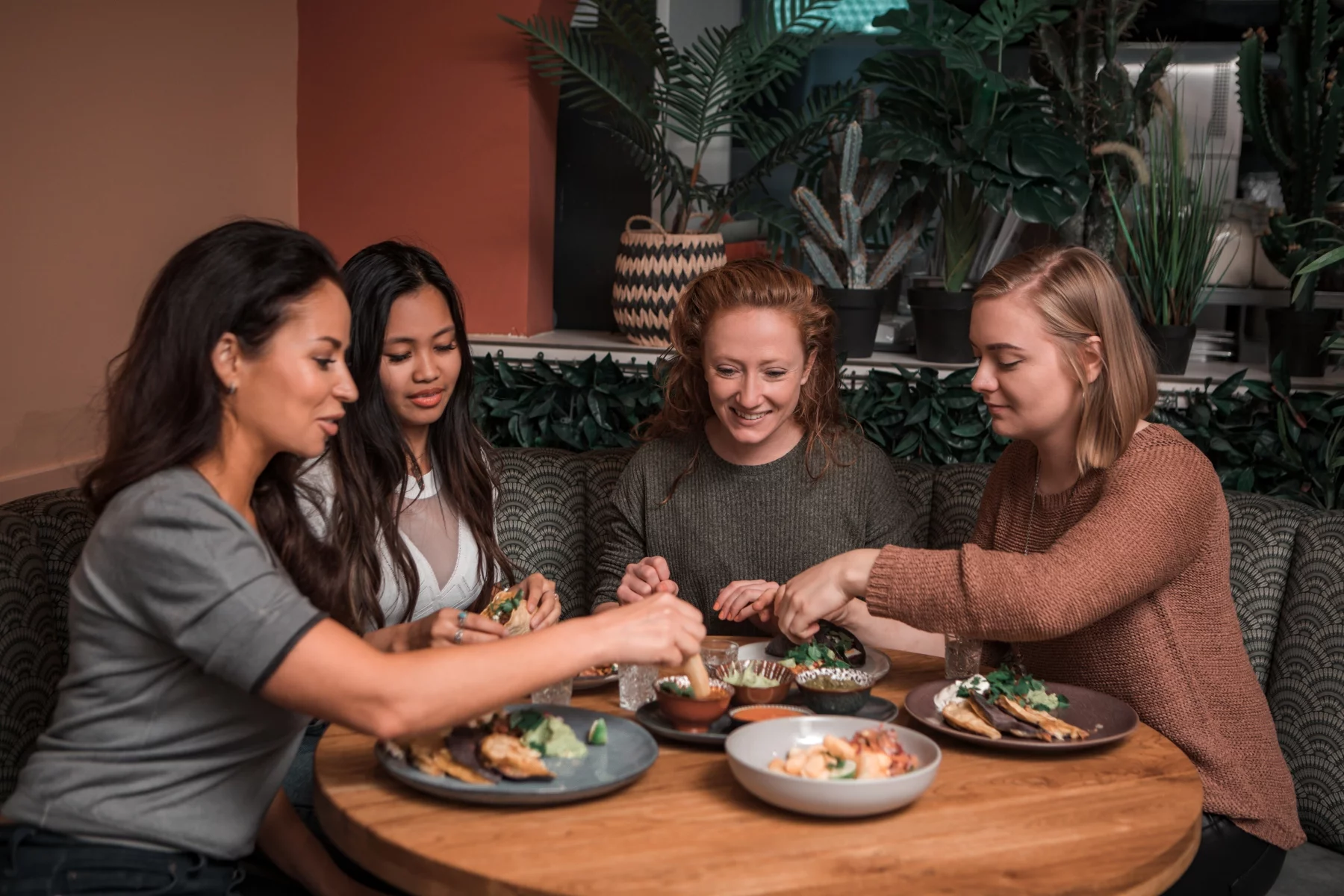
However, if you’re willing to take the initiative to socialize with Dutch people, you’ll often find them receptive. This is especially true if you learn Dutch to a good standard. One good way to meet Dutch people is by sharing common interests and joining clubs. Dutch people enjoy being active, so it could be a good idea to join a club for sports, yoga, cooking, or any other activity you enjoy.
Relationships in the Netherlands
The Dutch have quite a practical and no-nonsense attitude when it comes to dating and relationships. People of all genders appreciate directness and honesty, so you likely won’t get far playing hard-to-get in the Netherlands. Whereas some cultures uphold stricter beliefs regarding dating etiquette, such as men making the first move, or not kissing on the first date, the Netherlands takes a more relaxed perspective. Instead, Dutch people prefer to let things progress naturally based on what feels right.
Physical touch is normally kept to a minimum on the first date. Later on, it’s common for couples to be more openly affectionate with each other.
Marriage is becoming less common in the Netherlands. There were 56,419 marriages in 2021, compared with 73,400 marriages in 2010. Instead of getting married, more couples nowadays choose to formalize their relationship in a civil partnership.
The Netherlands was the first country in the world to legalize same-sex marriage in 2001. The same-sex marriage rate has remained relatively consistent over the past decade, with 1,192 recorded same-sex marriages in 2021.
Work and business culture in the Netherlands
Business culture in the Netherlands is relatively flexible and generally doesn’t have a rigid hierarchy. Dutch business etiquette centers around openness and egalitarianism, which is reflected in the flat structure that many companies and organizations have. Most decisions are made on the grounds of consensus, with input welcome from all members of the group.
Although Dutch people tend to keep their work life and their personal life separate, some companies organize social events for their employees. These might include borrels, or after-work drinks and snacks. Borrels tend to be fairly casual and normally end before dinner.
Shopping and services in the Netherlands
Shopping in the Netherlands is similar in many ways to shopping in most parts of Europe. However, Dutch customer service culture strongly reflects its egalitarian society, given that customers and staff are generally seen as equals. For that reason, people who strongly believe that the customer is always right will probably find Dutch customer service lacking.
Despite their penchant for efficiency, many people note that the Dutch have a disregard for waiting in lines. Most people will wait in lines at shops or supermarkets to pay for their shopping, but queuing etiquette isn’t considered an important part of Dutch culture.
Celebrations in the Netherlands
Most celebrations and traditions in the Netherlands are centered around religious holidays such as Christmas and Easter. One of the most popular festivities in the Netherlands is Sinterklaas, a holiday that takes place on 5 December. Although traditionally a children’s holiday, adults also celebrate Sinterklaas by exchanging gifts and writing a humorous poem about the gift’s recipient.
Around this period, you will also come across discussions about Zwarte Piet, a companion of Sinterklaas, who is played by Dutch people in blackface. In recent years, this tradition has begun to fall out of favor, due to its offensiveness to people of color and Dutch people wanting to ‘keep the peace.’ Indeed, Zwarte Piet is often the subject of heated demonstrations and counter-demonstrations.
Koningsdag, or King’s Day, is one of the biggest national holidays in the Netherlands. Each year on 27 April, people dress head to toe in orange and participate in lively street parties, music concerts, and flea markets.
Birthdays in the Netherlands also have some unique customs and traditions. At birthday parties, it’s customary to wish “gefeliciteerd” (congratulations) to everyone attending, not just to the person whose birthday it is. The Dutch are also notorious for hosting circle parties, where guests sit in a circle chatting while enjoying tea and cake.
Gifts in the Netherlands
When visiting a Dutch person’s home, it’s good etiquette to bring a small gift for the host or hostess. It’s best to avoid gifting very expensive or lavish items, as this can make the host feel uncomfortable. Instead, bring something simple such as flowers, chocolates, or a bottle of wine, if they drink. Rather than waiting to open the gift in private, most Dutch people open gifts immediately upon receiving them.
The Netherlands also has a booming gift card market. Many Dutch people buy gift cards (cadeaukaartjes or cadeaubonnen) from popular e-retailers and gift them to friends, family, and work colleagues for birthdays, holidays, and other special occasions.
Gift-giving isn’t a common aspect of Dutch business culture. If you’d like to give a gift to a business partner, it’s best to give something modest. It’s also best to wait until you’ve established a relationship and finalized any business negotiations before offering any gifts.
Regional variations
The Netherlands divides into two major geographic and cultural regions – the Randstad, and outside the Randstad. The Randstad encompasses the country’s major cities, including Amsterdam, Rotterdam, The Hague (Den Haag), and Utrecht. As such, the culture is distinctly urban, and people tend to have more liberal attitudes. Conversely, people from outside this area are generally said to be more conservative.
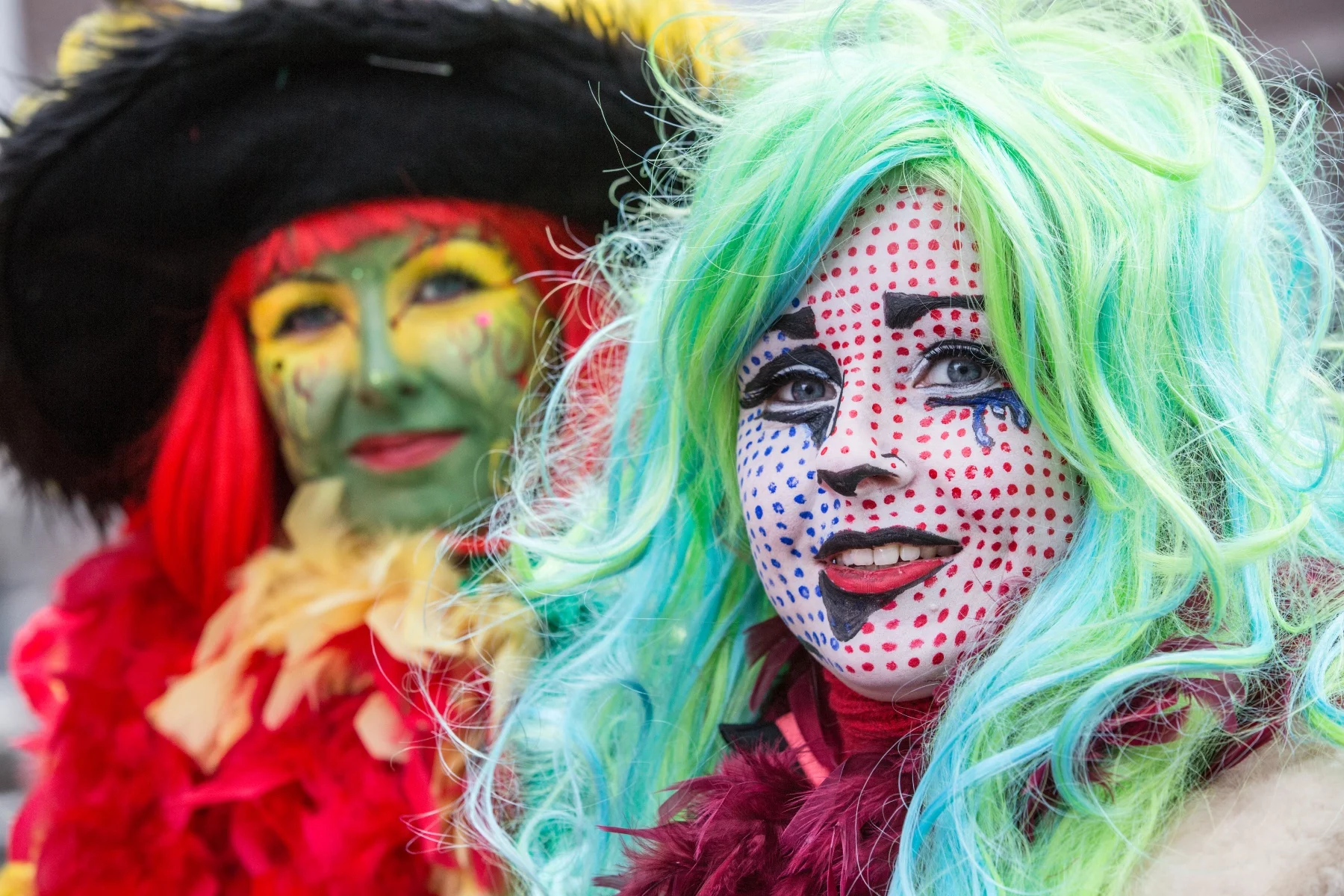
Outside the Randstad, you may find that religion plays a more significant part in life than elsewhere. While most of the Netherlands is Protestant, southern and eastern regions are traditionally Catholic. For instance, you might celebrate Carnaval in February or March if you live in Limburg. On the other hand, in rural Protestant areas, shops might be closed and activities discouraged on Sundays.
Tips on culture and etiquette in the Netherlands
It can take some time to adjust to a new culture and its customs. To make your life easier, follow these quick tips on Dutch culture and social etiquette:
- Arrive at appointments on time and let people know if you’re running a few minutes late.
- Avoid dropping by someone’s house unannounced.
- Don’t make boastful comments that display a sense of superiority.
- Keep small talk to a minimum at formal and business meetings.
- Don’t call the Netherlands “Holland” (Holland is a region in the Netherlands).
- Make an effort to speak Dutch, even if most people in the Netherlands speak fluent English.
Useful resources
- Government of the Netherlands
- Net in Nederland – an online platform from broadcaster NPO, explaining elements of Dutch culture
- Inburgeren.nl – instructions for how to integrate into the Netherlands





